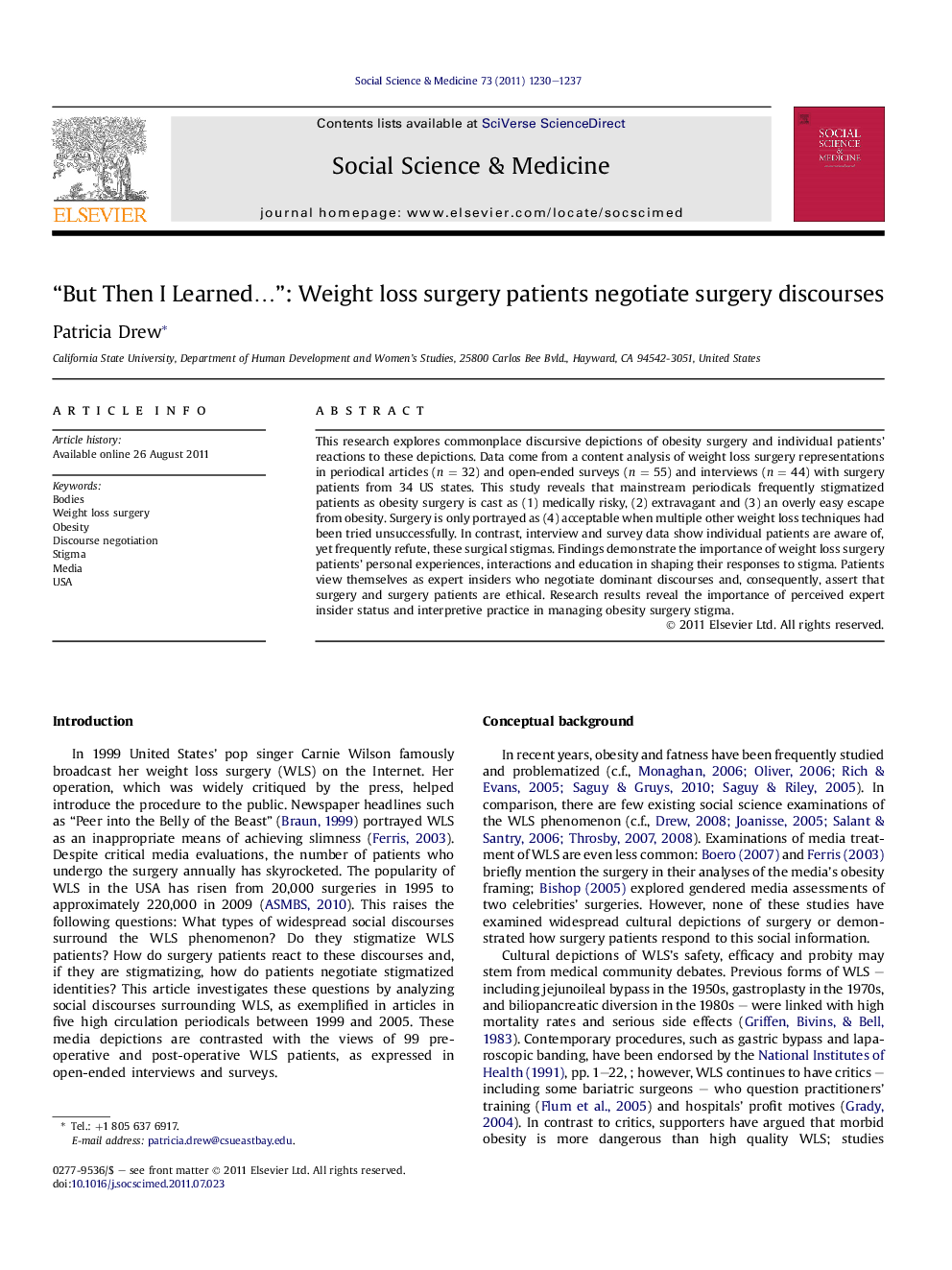| Article ID | Journal | Published Year | Pages | File Type |
|---|---|---|---|---|
| 952863 | Social Science & Medicine | 2011 | 8 Pages |
This research explores commonplace discursive depictions of obesity surgery and individual patients’ reactions to these depictions. Data come from a content analysis of weight loss surgery representations in periodical articles (n = 32) and open-ended surveys (n = 55) and interviews (n = 44) with surgery patients from 34 US states. This study reveals that mainstream periodicals frequently stigmatized patients as obesity surgery is cast as (1) medically risky, (2) extravagant and (3) an overly easy escape from obesity. Surgery is only portrayed as (4) acceptable when multiple other weight loss techniques had been tried unsuccessfully. In contrast, interview and survey data show individual patients are aware of, yet frequently refute, these surgical stigmas. Findings demonstrate the importance of weight loss surgery patients’ personal experiences, interactions and education in shaping their responses to stigma. Patients view themselves as expert insiders who negotiate dominant discourses and, consequently, assert that surgery and surgery patients are ethical. Research results reveal the importance of perceived expert insider status and interpretive practice in managing obesity surgery stigma.
► This study explores widespread discursive depictions of obesity surgery and patients’ reactions to these depictions in the USA. ► Obesity surgery is frequently cast as (1) medically risky, (2) extravagant and (3) an overly easy escape from obesity. ► Patients’ personal experiences, interactions and education help shape their responses to stigma. ► Results reveal the importance of perceived expert insider status in managing obesity surgery stigma.
